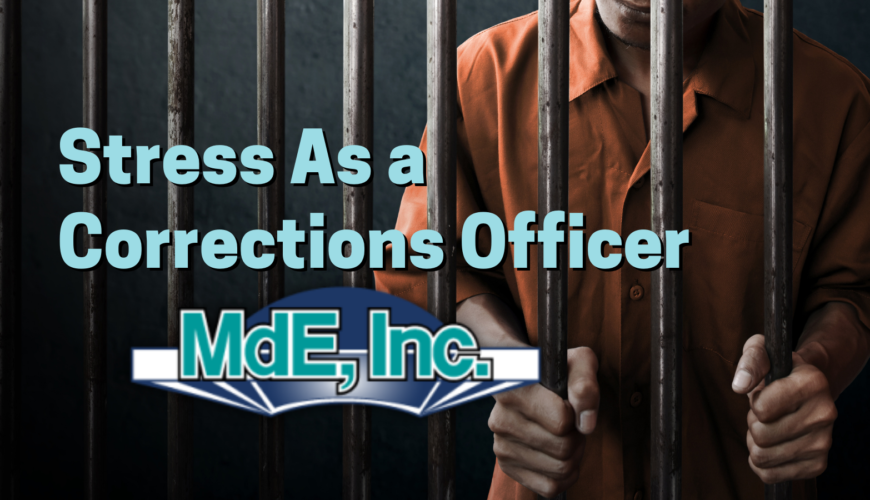You might be a corrections officer if. Jeff Foxworthy poked fun at rednecks, jabbing at nearly every occupation along the way, including stressful occupations like corrections officers. High wages, great benefits, and early retirement are benefits that attract workers to the job—one that comes with immense emotional stressors.
The United States Department of Labor reports that corrections officers have the highest rates of injuries and illnesses as compared to all other occupations. Corrections officers receive training in excess of 40 hours, which generally does not include instruction on job-related stress.
Psychologist Caterina Spinaris conducted a study in 2013 which showed that 31% of corrections officers suffered from PTSD—a rate that rivals combat-induced PTSD in veterans. This may be due to multiple types of stressors that affect prison guards.
- Line of duty stress—managing inmate behavior manifests in constant hypervigilance and fight or flight response.
- Organizational stress—striking a balance between maintaining environmental control and pleasing superiors who defend against allegations of prisoner abuse.
- Fatigue-based stress—working late and overnight shifts, overtime, and emotional overload.
- Familial and societal stress—maintaining family, financial, and other personal matters.
- Stress frequency—facing consecutive days of shift-long fight or flight response.
Two parts of the brain are affected by stress—the amygdala and the hippocampus. Have you ever seen someone in crisis who seems to have super-human strength? If you looked inside his brain, you’d see a portion of his brain, the amygdala, going into overdrive. The amygdala is the emotion and fear center of the brain. It protects the body by sending it into a state of fight or flight. The hippocampus is connected to the amygdala and its function is greatly compromised by stress. One stressful event can kill brain cells and disrupt memory function.
Untreated stress decreases a corrections officer’s resiliency, leaving him or her less able to bounce back after traumatic events. So, how can you shield against the daily stressors that accompany the job?
Balance work and daily life by taking care of your body and mind. While you spend many hours working, seek balance by keeping company with family and non-guard friends. Plan it into your schedule like any other appointment.
Run it off. Regular exercise pumps up your endorphins and battles depression. Take a pre-or post-shift run or hit the gym on a regular basis. Team up with a friend to hold yourself accountable.
Eat a healthy diet that is rich in protein. Eat small meals every few hours to keep your metabolism high. Challenge yourself to eat out less and make healthier choices at the fast-food drive-up. Make smart choices—the food that you eat shouldn’t go through more processing than the inmates.
Just as you need to be fully alert in order to protect yourself on the job, give yourself an extra dose of care to protect your mental and emotional health off the job.
MdE has worked with Corrections Officers for over 20 years. We provide software and services for tracking training and performance which can aid in early intervention. If you or someone you know is interested in more information, contact us at MdE@MdE-Inc.com or call 877-500-5396.


